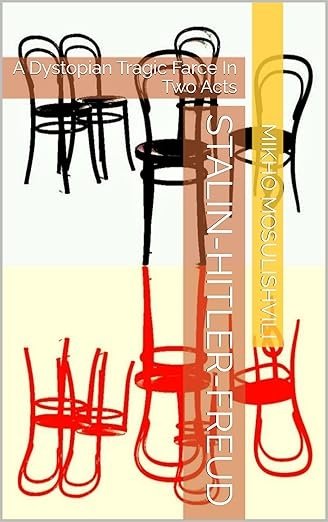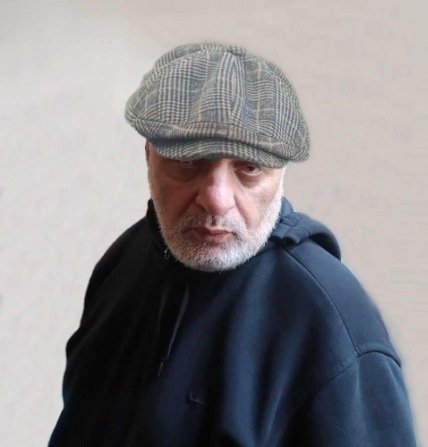STALIN-HITLER-FREUD: A Dystopian Tragic Farce In Two Acts

$4.99
Description
Seven keys for the play "Stalin-Hitler-Freud."
1. Historical Satire with a Dystopian Twist: The play is a satirical and dystopian take on historical figures—Joseph Stalin, Adolf Hitler, and Sigmund Freud—interacting in 1913 Vienna. It casts an ironic lens on the formative years of two future dictators and a prominent psychoanalyst.
2. Psychoanalytic Themes: A character of Sigmund Freud adds a layer of psychological analysis, addressing hidden human impulses, aggression, and sexuality. His dialogues delve into the destructive drives that eventually lead to catastrophic events, all within a farce setting.
3. Chess as a Metaphor for Power and Death: The unique chess rule in the play—requiring the real-life death of individuals when their representative pieces are captured—powers as a metaphor for totalitarian regimes' power struggles and violence.
4. Symbolism and Absurdism: Through absurd interactions and symbolic elements, the play explores deeper themes of ambition, identity, and the nature of evil. It employs humor and irony to highlight the inherent contradictions and tragic flaws.
5. Fictional Female Characters with Pivotal Roles: Irma, a hotel owner, and Anna, a waitress, bring out different facets of the main characters, adding complexity to the story. Their roles provide romantic intrigue and act as social commentary on the treatment of women in that era.
6. Setting in Café Central, Vienna: The setting café in Vienna—a hub for intellectual and artistic exchange—provides a historically rich backdrop for the play. It symbolizes the clash between intellectualism and rising authoritarianism, the tumultuous socio-political climate of early 20th-century Europe.
7. Psychological Perspective on Politics and Power of Freud: The Nationalism and the Darker Sides of Psyche insights a counterpoint offer to Stalin and Hitler, highlighting the psychological underpinnings of dictatorship and fanaticism.
These elements combine to make the play a tragicomic examination of power, morality, and human nature, critiquing the ideologies and personalities that shaped a century.


